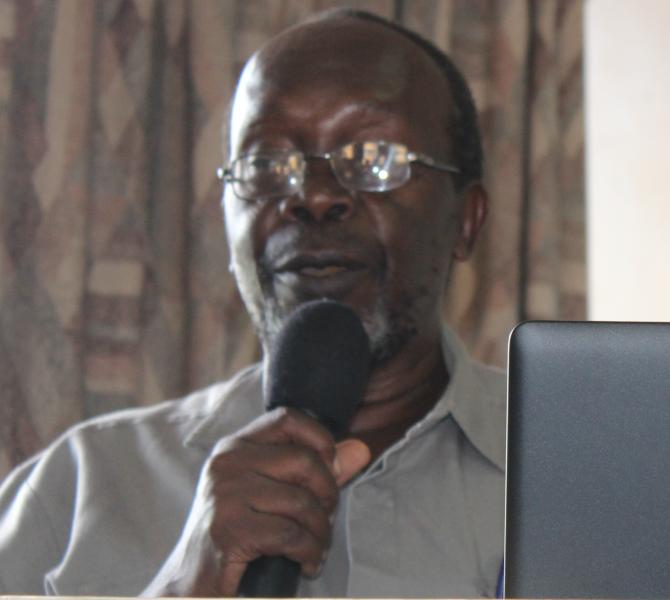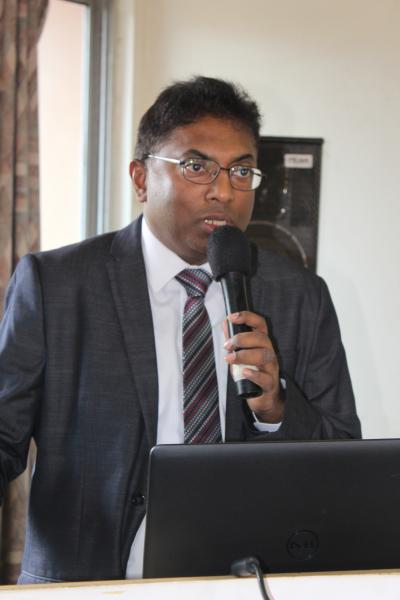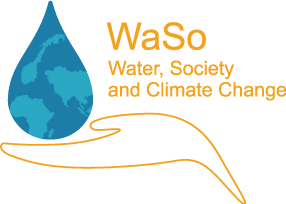On 21st March, 2016, water and environment experts met at Makerere University to deliberate on emerging issues and technologies in wastewater treatment, water supply and water governance. The workshop brought together academia, water resources managers, environment managers, civil society and service providers in the water sector. The main objective of the workshop was to set an agenda and build themes around issues of wastewater treatment, water governance and trans-boundary resources for further collaboration.
The workshop is an annual activity of the five-year Water and Society (WaSo) project aimed at building institutional capacity in water management and climate change adaptation in selected countries of Asia and Africa. The project is funded by the Norwegian Programme for Capacity Development in Higher Education and Research for Development (NORHED) and it involves eleven partner universities including Makerere University (Uganda), University of Nairobi (Kenya), Addis Ababa University (Ethiopia), University of Juba (South Sudan), University of Paredenia and University of Jaffna (SriLanka), Bangladesh University of Engineering & Technology, Institute of Technology Cambodia, University of Bergen (Norway), Norwegian University of Life Sciences and the UniversityCollege of Southeast Norway (USN).
At the meeting, the Principal Investigator, Prof. Edward K. Kirumira, briefed participants on the project’s objectives, activities and achievements thus far. He said the project had so far awarded four postdocs, 2 PhDs and 7 MA fellowships in water resources related programmes. He underscored the importance of building capacity in water resources programmes saying the country was in dire need of water experts.

Prof. Kirumira is the Principal Investigator
Prof. Kirumira is the Principal Investigator
Prof. Kirumira noted that urbanization and population growth were complicating water supply and wastewater management. “Urbanization and rapid population growth have resulted into water shortage hence the need for wastewater treatment to increase supply. It is however getting harder to set up large water treatment plants due to limited space as a result of urbanization and population growth,” he explained. He said there was need to take stock of innovations that countries can use to preserve water.
Addressing participants, Prof. Hannington Oryem-Origa who represented the Vice Chancellor said the challenges of dealing with wastewater were growing exponentially. He however reiterated that the challenges could be turned into opportunities by using appropriate technologies and policies. “It takes a concerted effort of the government, private sector and academia to build the required human and institutional capacity to act as a driving force that will maintain the momentum of adaptation to such emerging challenges.

Prof. Hannington Oryem-Origa, Chair NIDIC
The primary goal of the NORHED projects (13 in total at Makerere University) is to do just that. I appeal to all stakeholders, especially National Water and Sewerage Cooperation, NEMA, the civil society and private sector to cooperate and support our researchers by providing concrete facts on the issues being investigated to enable them effectively address the challenges in training and research within the scope of the theme of this workshop,” he said.
He expressed gratitude to the Norwegian government for supporting research, capacity building programmes and infrastructural development at Makerere University. Prof. Oryem is the Chair of the NORHED Institutional Development Committee (NIDIC).

Prof. Harsha Ratanaweera was the Keynote Speaker
The workshop featured a keynote address on “Technology trends in water and wastewater treatment” by Prof. Harsha Ratanaweera from the Norwegian University of Life Sciences. In his remarks, Prof. Harsha noted that 90% of the world’s GDP depends on water. The world GDP stands at 77.6 trillion USD. He said 70% of the world is covered with water but only 3% fresh and less that 0.007% easily accessible for humans. With those statistics, he advised that there was need to invest in cheaper technology to harvest, treat and preserve water.
Dr. Herbert Mpagi Kalibbala from the College of Engineering, Design, Art and Technology, Makerere University called for a change in people’s attitudes in water use and management. He said there was need for political will and a decentralized system of wastewater treatment to mitigate the challenges.
In his presentation titled; “Waste Water Resource Recovery and Reuse (WW-RRR): Institutional/Stakeholders Feasibility Assessment in Uganda”. Dr Daudi Batega noted that there are gaps in the regulatory framework concerning WW-RRR. “Whereas, there are policy and legal instruments for the discharge and collection of human waste, there are no clear and express provisions for the use of WW and faecal sludge products,” he explained.
The workshop was officially closed by the Deputy Director, Directorate of Research and Graduate Training, Prof. David Owiny, who emphasized the importance of water and the need to minimize wastage.
– See more here
